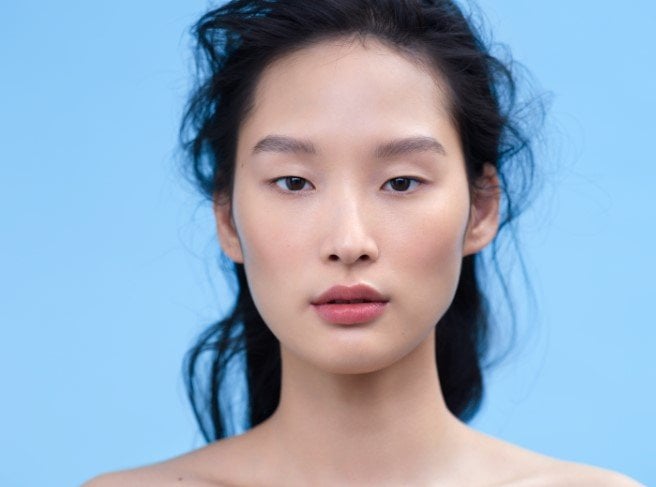5 BAD BEAUTY HABITS
TO DROP
1. Stop using allergy-unfriendly cosmetics
Many cosmetics contain allergens and irritants. A good rule of thumb is to look for products that contain 0% fragrance, 0% alcohol and 0% unnecessary ingredients. Other potentially irritant or allergenic ingredients to avoid include AHAs (alpha hydroxy acids), urea, and essential oils. If you choose make-up for allergic skin, and hypoallergenic moisturisers and skincare products, you're unlikely to go wrong.
2a. Don't under-cleanse
If you don’t cleanse at the end of the day, you are leaving allergens and irritants such as pollen and pollution in contact with your skin all night long. They can interfere with skin's barrier function1and cause irritation.
Did you know? Skin’s barrier function relies on the friendly bacteria that live on it.
2b. Don't over-cleanse!
You want to “take the day off your skin,” but if you also take away your skin’s precious surface lipids, you are leaving it vulnerable to reactions. Opt for gentle cleansers such as micellar waters that know what to remove and what to leave behind. Soap, even hypoallergenic soap, is too harsh for sensitive-to-allergic skin.
3a. Don't skip washing your hands before applying products
You could be transferring allergens and irritants from anything you have touched onto your skin (just think for a moment how many harsh household products there are). Also remember that many allergens in products make their way into the jar or bottle from the environment. Always opt for a tube over a jar. If you have highly reactive or allergic-type skin, look for airtight packaging that uses a one-way valve to prevent allergens from entering the formula once the tube has been opened.
3b. Don't skip washing your make-up brushes, puffs, and sponges
Every one of these handy tools is a dust and allergen trap. Wash them with hypoallergenic soap, at least once a week.
4. Ditch the DIY masks
Fun though it may be, raiding your kitchen cupboards and concocting your very own skin treatments is a recipe for reactions if you have allergic-type skin. Common offenders?
Lemon juice: Its acidic pH can irritate skin and promote reactions.
Baking soda: its extreme alkaline pH is totally incompatible with skin’s natural physiology!.
Cinnamon is a recognized irritant, as one beauty vlogger found out the hard way .
Oats: Though soothing for some people, they are full of allergens if you are predisposed.
Milk: Cleopatra used to bathe in it, but it’s also one of the commonest food allergens.
5. Don't ban skincare outright
Some people are tempted to go full-on purist and reject all skincare. It's a short-sighted measure. The most sensitive or allergic-type skin needs proper care to keep it happy. A cooling thermal water mist followed by a well-tolerated formula created specifically for allergy-prone skin is a great start.
Check these everyday bad habits too.






